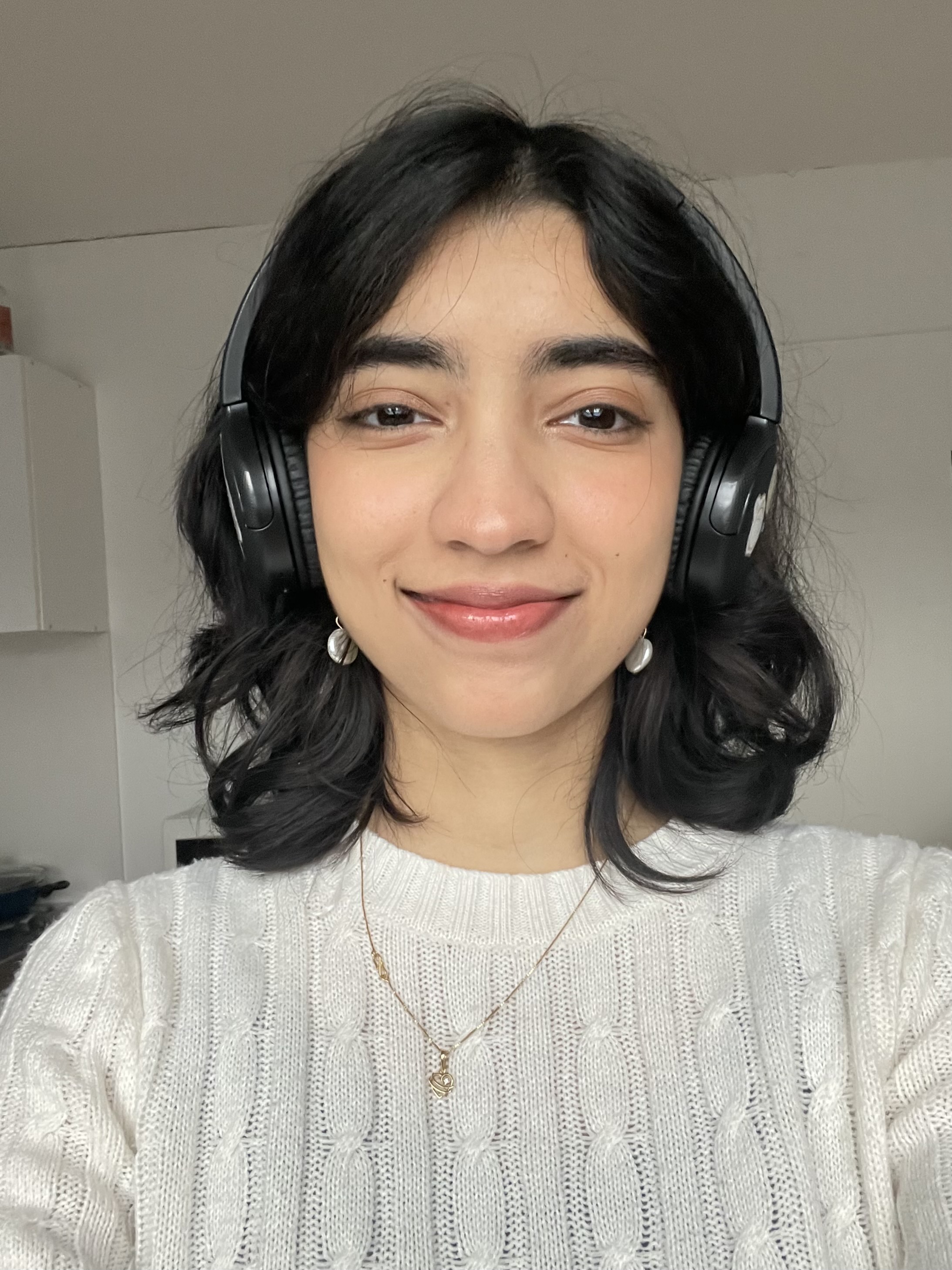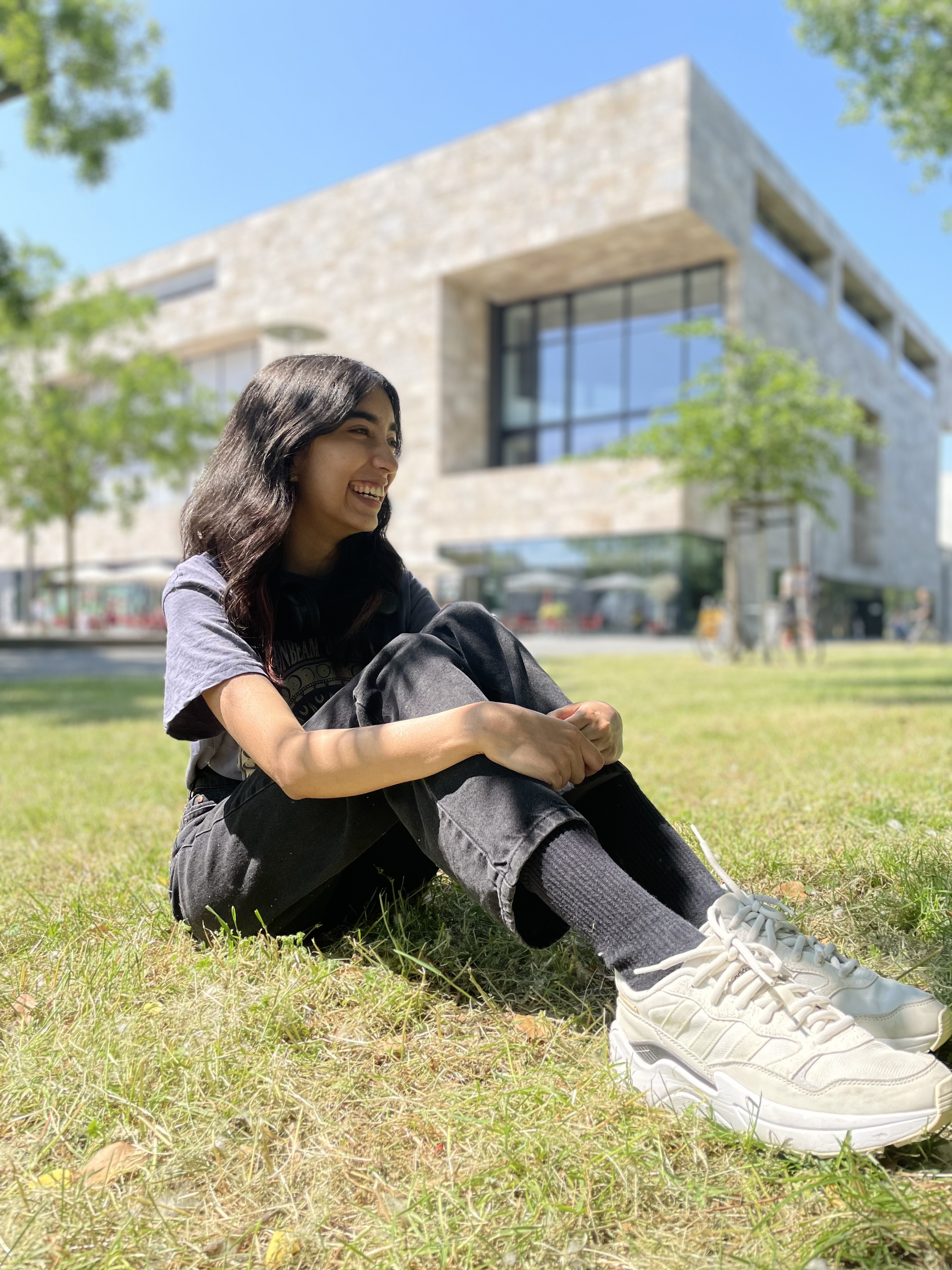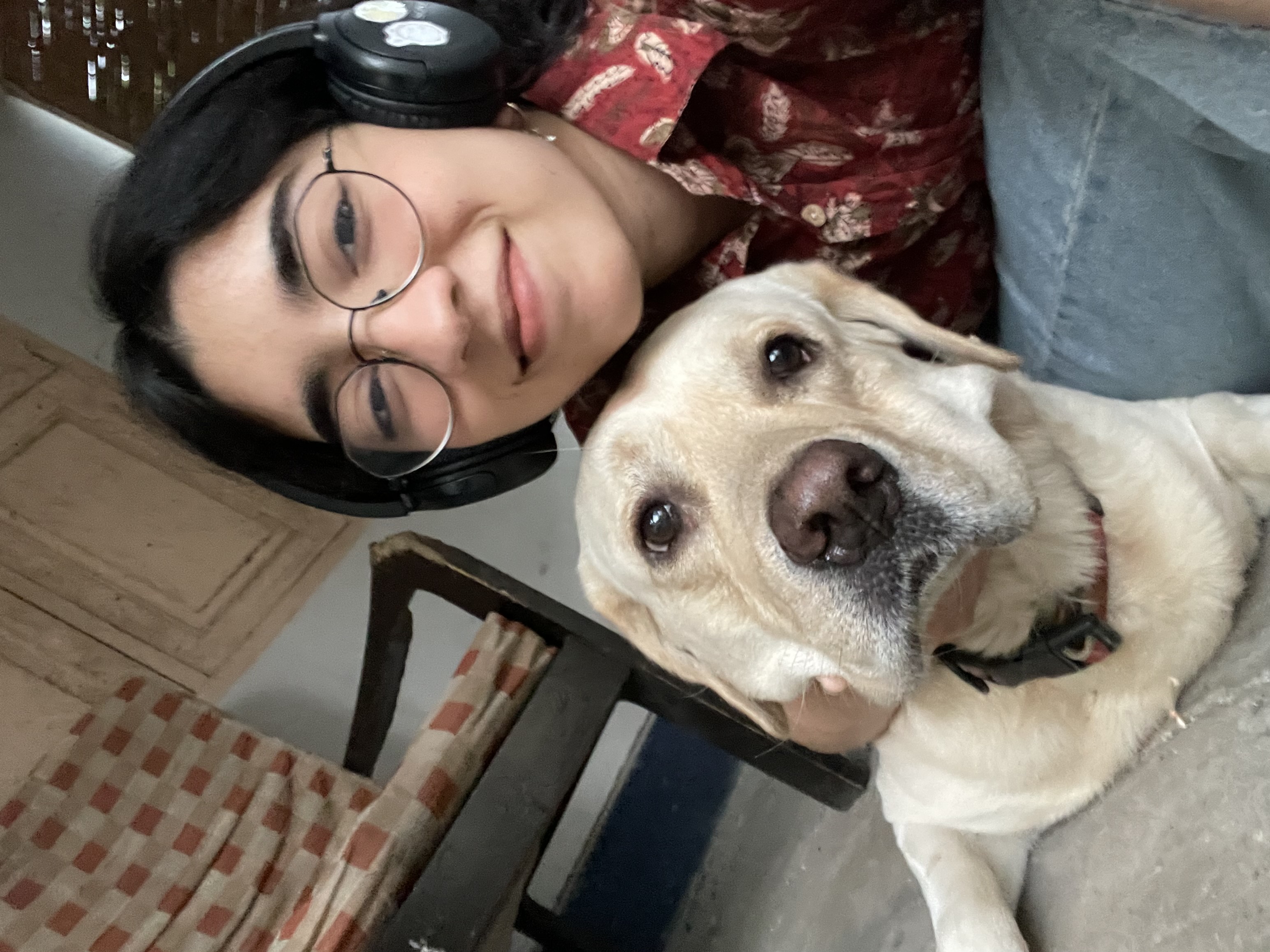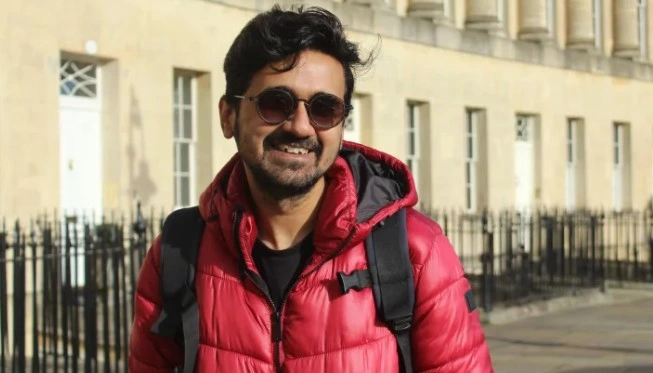Name: Asmi Maria
University: Goethe Universität
Course: Bsc. Biology
Location: Frankfurt
Key Highlights
- Germany has become popular with Indian students due to its high-quality education
Adjusting to a new country can be daunting initially, but it gets smooth later
German education system emphasises on critical thinking and the practical application of learned concepts
(August 8, 2024) Asmi Maria was in Class 11 when she knew she would study abroad. Having a sister studying in Germany, the path for her was already set. “She laid the groundwork for me to follow,” she tells Global Indian. The student of Biology at Goethe University is realising her dream of living abroad.

Asmi Maria
Q: What led you to choose the BSc Biology program at Goethe University in Frankfurt?
Biology was always the subject that captivated me the most in school, with marine biology being a particular fascination from a young age. I attended a one-year preparatory course called Studienkolleg for international students, which is required to study at German universities due to their 13-year schooling system, compared to the usual 12 years in most other countries. During this course, I revisited subjects from higher secondary school, such as biology, physics, chemistry, maths, and German. Hearing from people who had studied this specific course at Goethe University further solidified my interest in pursuing biology in Frankfurt. The curriculum of my current course offers a wide-ranging perspective on various fields within biology, which is especially helpful when you’re still exploring your specialisation options.
Q: What influenced your decision to choose Goethe University in the first place? And how popular is Germany among Indian students, given that many still prefer studying in the US, UK, and Canada?
Since Studienkolleg was in Frankfurt, I got accustomed to living here for a year and grew to like the city. This familiarity made me want to stay in Frankfurt for university as well. The Studienkolleg is an institute of Goethe University, so getting accepted was relatively straightforward, and being already familiar with the university was an added advantage.
Germany has become quite popular among Indian students, and I’ve read that the number of Indian students here has increased significantly in recent years. However, many students still prefer English-speaking countries due to the language barrier, as German universities require a high level of language fluency for undergraduate studies. Learning a new language takes a lot of time and commitment, and the process of learning never really stops. Nonetheless, many students, including myself, choose to study in Germany because of the significantly lower tuition fees compared to places like the US, while still receiving a high-quality education.

Q: Can you tell us a bit about the admission process? What documents and requirements do you need to submit to the university?
To apply to the university, you typically only need your school certificates, a language proficiency certificate, and the application fees. Some universities may also require a certificate of recognition, which can usually be applied for through the university. Additionally, you might need to provide proof of a blocked account for certain applications.
Q: How easy or difficult was it for you to adjust to life after moving from India to Germany?
For me, the transition was much easier than I expected because of my sister. Having a close family member for support made the experience much smoother. Of course, there was a culture shock, as Germany is very different from India. Also, this was my first time traveling abroad, so it took some time to adjust to how things work in a new country, especially the public transport system. However, after the initial teething troubles, I found it quite easy.
Q: What was your first week at the university like, getting to know a new place and new people? How does the study culture in Germany differ from that in India?
My first week at Studienkolleg was very different from my first week at university. Studienkolleg felt like a continuation of 12th grade but with students from many different countries, which was a new and exciting experience. The small classroom setting made it easier to make friends and engage in class, reminding me of my school days, but with the added opportunity to meet people from various cultures and share our diverse experiences.
More importantly, I gained insight into how German schools teach their students and the qualities they value, compared to Indian schools. Coming from a State Board school in India, where I was used to memorising answers without fully understanding the concepts, it was challenging to adapt to the German education system, which emphasizes critical thinking and the practical application of learned concepts. However, after a year at Studienkolleg, I felt much better prepared for university studies, and my German had significantly improved through constant interaction with classmates and teachers.
I also found it easier to make good friends at Studienkolleg due to the shared international background with my classmates. At university, the feeling of being a foreigner and somewhat out of place is stronger, although I know that’s not the case for all international students.

Q: What do you love about your university?
Being a student in Germany comes with many perks, especially at my university. I appreciate the access to excellent libraries and cafeterias, which are almost free for students. There are also numerous events and workshops available at no cost or for a nominal fee. The university offers a wide range of sports classes and activities at a highly discounted price, making them accessible to most students. The campus is spacious and surrounded by nature, making it a pleasant place to sit outside and study.
Q: Was it easy finding a accommodation in Frankfurt?
Frankfurt is notorious for having a challenging housing market and being particularly expensive for students. However, I was fortunate to find a room in a private house before my Studienkolleg course started. This was one of the reasons I wanted to continue studying in Frankfurt, as I didn’t want the hassle of finding a new place to live.
For students, there is also the option of living in a dormitory. Goethe University offers a lot of student housing options, but due to extremely high demand, the waiting period for a room in the dorms can range from six months to two years.
Q: Have you picked up anything interesting from German culture?
Germans have a specific work ethic and place a high value on their rest time. On Sundays, almost all stores are closed. It’s considered a day of relaxation, giving people time to rest and spend with their families. Initially, I found it odd as I was used to the convenience of stores being open even on Sundays in India, and I didn’t understand why Germans wouldn’t want that too. However, over time, I got used to it and grew to appreciate that it provides a break for everyone.
Q: What were some of the biggest challenges you faced while pursuing your dream of studying abroad?
The first major obstacle I faced was obtaining my visa. At the time I applied, there were many changes in the German Consulate’s application process, resulting in an unusually long wait for my appointment. There was also a lot of uncertainty about whether my visa would be approved. I ended up having to delay my trip by a few months and missed the semester I originally planned to start. Even after arriving in Germany, I had to pass an entrance exam to gain admission to Studienkolleg. The preparation and stress leading up to the exam were intense, and the language barrier was a constant challenge. Although my German was quite good, I struggled to converse freely, which was difficult to overcome. I still face occasional language challenges, but it has become easier over time.

As for what I’ve learned during my time at the university, I would say the experience of moving abroad and living independently has been more impactful than the academic studies themselves. I was 17 when I came here, so I was quite inexperienced and unsure about managing everything on my own. Over time, handling these responsibilities has increased my confidence in a way that wouldn’t have happened if I had stayed in India with my parents. Living independently helps you mature quickly, as I’ve noticed with myself and my friends here.
University has specifically taught me responsibility. From what I’ve heard, university life in Germany is quite different from back home. There’s almost no mandatory attendance, classes are large with limited personal interaction between professors and students, and it’s up to you to attend classes, submit assignments, and study for exams. I feel this level of independence would be different if I were studying in India, where my parents would likely be more involved.
Q: How has your experience of living in a foreign country been so far?
I’ve adapted well to life in Germany and find that I really enjoy the culture and environment here. Having my sister and friends here has significantly influenced this experience; it would be much less enjoyable if I were completely alone. Despite the stereotype that Germans are cold and serious, I haven’t found that to be true at all. Nearly everyone I’ve met has been warm and kind, which has helped me feel at home here much more quickly.
Q: What advice would you give to Indian students who aspire to study abroad?
Be prepared for many challenges and for things not always going as planned, as this is something I struggled with. It’s definitely not an easy path, and you might question your decisions at times. However, if this is something you truly want and you’re ready to face the difficulties, it will definitely be worth it in the end.
Also Read: Balancing career and academia: Priyanka Jha’s Oxford experience
Also Read: Subhrajit Barua: Gaining global experience and skills through Russia’s Open Doors scholarship



